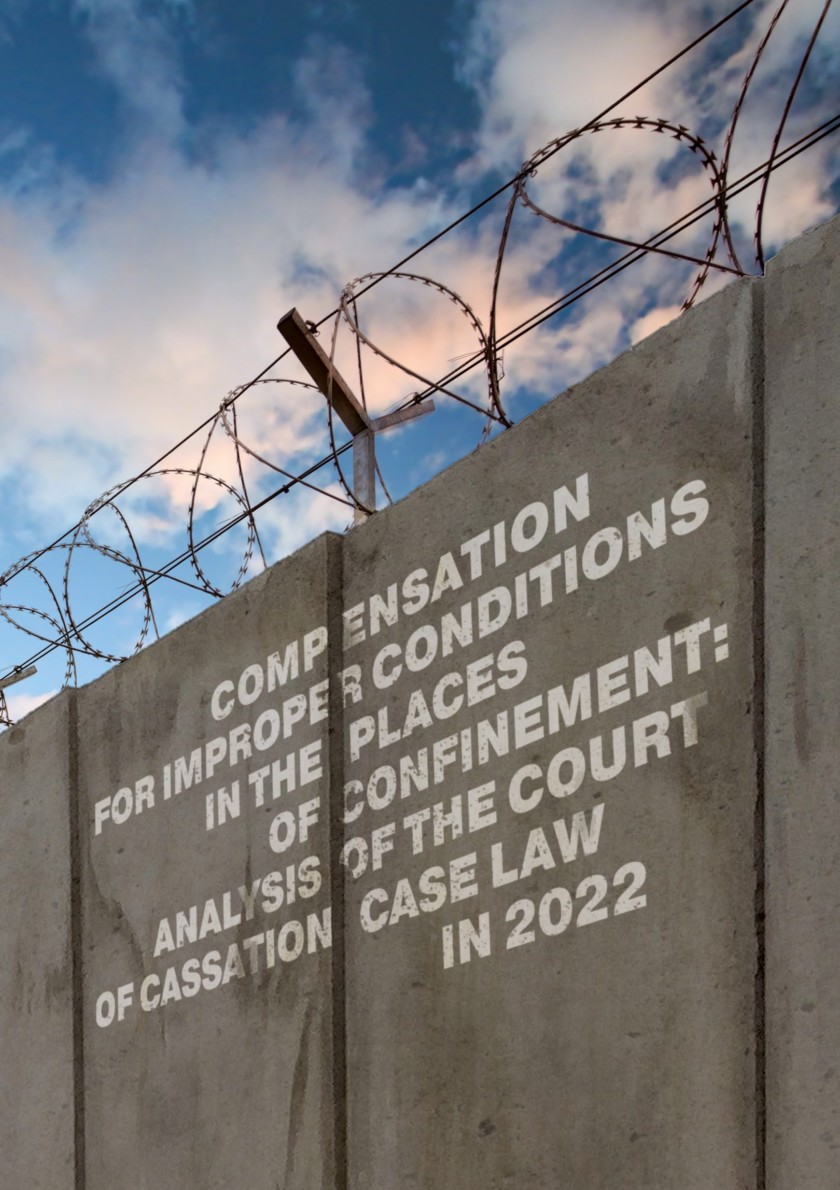The detention conditions in Russian prisons often meet neither European nor Russian standards. On 27 January 2020, the provisions of the Administrative Procedure Code of Russia which allow filing an administrative claim for compensation for inadequate detention conditions came into force. In such a case the administrative claimant is not required to prove the guilt of the defendant – the administration of the institution of confinement – for moral damage caused by improper detention conditions. The very fact of being held in inadequate conditions is sufficient to award compensation.
We have been monitoring the legal usage of a compensatory remedy to evaluate its effectiveness. In 2021, we have already introduced a review of court decisions that have become final. The results of our monitoring made us question the effectiveness of the remedy primarily due to the insignificant amounts of compensation ordered by the courts. These amounts cannot be compared with an average compensation that the legislators envisaged when drafting the law and which is comparable to the amount of compensation, ordered by the ECtHR. In 2022, we undertook fresh monitoring and analysed the decisions of the cassation courts of general jurisdiction and the Supreme Court of the Russian Federation. We decided to examine whether the higher courts’ rulings were able to correct the lower courts’ rulings and ensure the effectiveness of the compensatory remedy.
The monitoring of the decisions of the cassation courts showed that in the realm of ensuring the effectiveness of the compensatory remedy they do not have a significant impact on the rulings of lower courts. The primary reason is that the cassation courts consider determining the amount of compensation beyond their competence. From the perspective of the cassation courts, only the court of first and second instances can determine the particular amount of compensation. The cassation courts only indicate that when determining the amount of compensation the lower courts did not ascertain and did not take into account all the important circumstances of the case and then they remit the case for a re-trial. At the same time, higher courts do not recognise such decisions as unjustified and do not find the compensation disproportionate or unduly low. In our opinion, this approach of the higher courts will, at best, lead to a slight increase in the amount of compensation, and at worst, the amount will remain unchanged. Thus, the monitoring of case-law of courts reveals consistent grounds for questioning the effectiveness of the compensation for improper d
